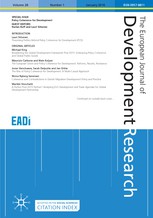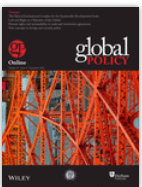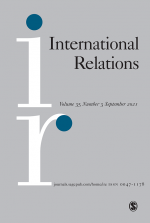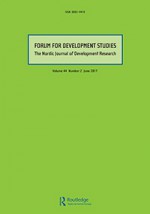Intervening in Complex Humanitarian Emergencies: The Role of Regional Cooperation

Conflict management, conflict intervention and post-conflict reconstruction are major issues in the development discourse. It is also a field where regional cooperation has a great potential, but where the success stories are few. The same is true for multilateral interventions. This only proves that the whole approach to conflict management is misconceived and too much focused on short-term ‘fire-brigade’ actions. The point of departure in this article is that conflicts and ‘complex humanitarian emergencies’ are not sudden events but should rather be seen as historical structures that are transformed over time. By analysing a conflict as a historical structure going through distinct phases – (1) the early prevention, or ‘provention’ of conflict, (2) preventive diplomacy, (3) modes of external intervention, (4) peace settlement, (5) conflict resolution, and (6) post-conflict reconstruction – it is shown how conflict management can be redirected towards the root causes of conflict, but also towards the rather neglected post-conflict reconstruction phase. The two case studies in the article (the Balkans and West Africa) show that conflict management usually comes too late, utilising the wrong means and that post-conflict reconstruction is poorly understood, underfinanced and generally neglected. The analysis shows that the institutional preconditions for regional conflict management and conflict resolution are uneven and underdeveloped. Hence, a regional integration approach is needed to make this process sustainable. Finally, there is also need for a multilateral rules system in order to increase the legitimacy and legality of intervention in humanitarian crises.








